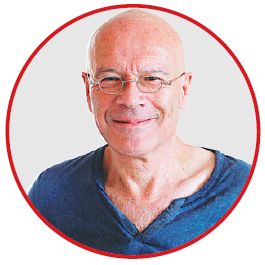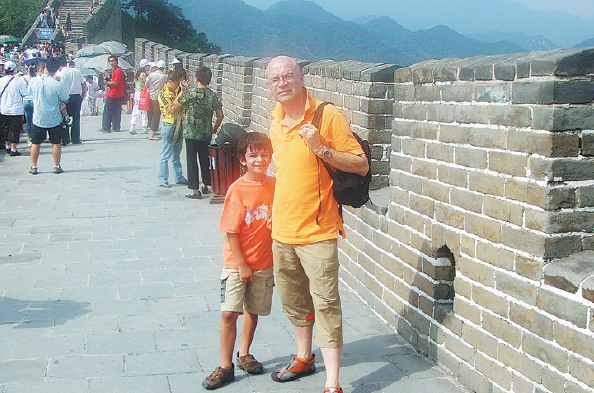
1945 in Coventry, England
EDUCATION:
1957-64: King Henry VIII School, Coventry
1968: Manchester University, BA in economics (first class honors)
1976: King's College, Cambridge, PhD
CAREER:
1965-90: Executive committee member, Communist Party of Great Britain
1969-71: Tutor in economic history, King's College, Cambridge
1971-77: Editor of Marxism Today
1993: Editor and founder of London-based think tank Demos
1994-96: Deputy editor of The Independent
2003-08: Visiting fellow, London School of Economics Asian Research Center
2009: Author of When China Rules the World
2010-11: Bosch public policy fellow at the Transatlantic Academy, Washington
2013-present: Senior fellow at the Department of Politics and International Studies, Cambridge University
2016-present: Visiting professor, Tsinghua University, Beijing
Sinologist sees China changing the world

Additionally, the fact China grew from being a poor, developing country to a strong economic power means it has accumulated significant lessons and experiences that could be applicable to other developing countries today.
"China is a developing country and can understand the problems of development in a totally different way," he said. "The United States cannot relate to (the developing world) in the way that China can."
Although Jacques is now a firm advocate of China's incredible potential, he admits to having been somewhat ignorant of the East until 1993, when he visited China, Singapore, and Malaysia for a holiday.
In China, he saw construction cranes working round the clock, roads streaming with trucks and carts, and women balancing goods on the ends of bamboo poles.
"It absolutely seized my mind," he said. "Guangdong province was a sort of huge building site with land being cleared as far as you could see. So many people were in motion along the road. It was so obvious this was a huge, important historical moment I was watching."
From there, Jacques has watched China transform on his subsequent trips.
"When you go to any city in China now, you see a modern city," he said. "Living standards have clearly been transformed."
While on holiday in 1993, he met his wife, Malaysian-Indian lawyer Harinder Veriah, on the island of Tioman, off the east coast of Malaysia. Veriah, who died in 2000, inspired Jacques to understand more about Asia, and made him more determined to write a book that explained his discoveries to the world.
"She taught me to see the world from a non-Western perspective," he said. "If you are always with someone of the same culture you are an insider and never looking from the outside. She helped me see my country from an outsider's perspective."
In the years that followed, Jacques frequently traveled to China and other East Asian countries to research his book. When he started, the book's working title was "The End of the Western World". But gradually, as he worked on it, he realized that the book had to be primarily about China, which led to its new title, When China Rules the World.
Looking back, he stressed the crucial role of China's reform and opening-up policies in shaping the country's economic achievements and its global influence. In particular, he marvels at pioneering leader Deng Xiaoping, who is credited with turning China's planned economy into a market-driven one and for strengthening China's exchange efforts with the world.
He praised Deng's courage in the way he "fired the starting gun" for China's transformation at a moment of significant change in Chinese society.
In particular, Deng transformed the world's understanding of a socialist country. Instead of following the inward-looking model of the Soviet Union, Deng advocated an unprecedented outward approach.
"Deng Xiaoping said, 'We want to be a part of the world, we have to learn from the rest of the world, we must be open to the rest of the world,'" Jacques said. "That is fantastic. Now, we can see how important Deng is as a socialist thinker, who is also a global thinker, a leader for everyone."
For Jacques, Deng's remarks exhibit tremendous confidence, something that is impressive, considering China was then a poor country.
"The idea that you can measure against the rest of the world, and be willing to learn straight away, it's a confident attitude," he said.


